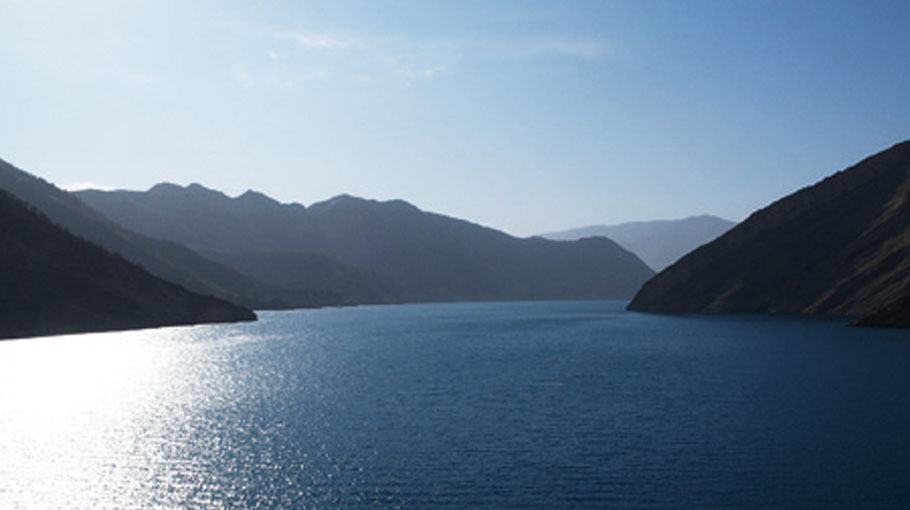Experts for integrated data sharing in trans-boundary water management

Experts on water and climate change, environmentalists, technical experts, academics and diplomats have emphasized on preparing a regional framework for comprehensive data sharing regarding trans-boundary water resource management.
They said that the complexities of water sharing require the identification of approaches for managing trans-boundary water management resources. The data on sharing water resources is essential as the data sharing builds trust among riparian countries, assists in mitigating conflict and improves environmental, economic and social outcomes.
The experts presented their statements at the two-day long ‘9th International Water Conference-2024’ that took place at a hotel in Dhaka city under the theme ‘River, Water and Climate Change: Creating Space for Resilience’. ActionAid Bangladesh organized the conference that ended on Thursday.
M Riaz Hamidullah, Netherlands Ambassador to Bangladesh; Nayoka Martinez-Bäckström, First Secretary and Deputy Head of Development Cooperation at Embassy of Sweden, Dr Ainun Nishat, Professor Emeritus at the Centre for Climate Change and Environmental Research (C3ER) of BRAC University, Dr Asif Nazrul, a professor at Department of Law of Dhaka University and Dr Khairul Islam, Regional Director at WaterAid, South Asia region spoke on the second day of the two-day workshop.
Ramzi Farook, Director of Asia and Humanitarian, ActionAid International; Abdul Alim, Head of Humanitarian Programme, ActionAid Bangladesh; Mir Mohammad Ali, an assistant professor at Sher-e-Bangla Agricultural University; Anu Dahal, Program Officer at Nepal Water Conservation Foundation; Dr Sufia Khanom, Senior Research Fellow at Bangladesh Institute of International and Strategic Studies (BIISS); Sudeep Chakravarti, an associate professor of South Asian Studies & Director, Center for South Asian Studies (C-SAS), ULAB; Edo Bricchetti, Ecomuseum Martesana, Italy; Commodore Mohammed Nurul Absar, (Retd) Chairman, Coxs’ Bazar Development Authority also spoke on the last day of the conference.
While moderating a session titled ‘Rights of the River: Integrated Basin Management’, Professor Asif Nazrul, said, “In South Asia, major upstream countries don’t want to sit with downstream countries. Most agreements are reactive agreements made to accommodate unilateral projects by upstream or powerful countries. They usually go bilateral to resolve any water and river-related disputes. If we look into the South Asian Water sharing treaties, we see that most of them are periodical treaties for a selective time-frame, which we don’t see in other parts of the world.”
He also said that all the basin states must find a fair way of water allocation to avoid disagreement. Also, there must be a regional framework for comprehensive data sharing regarding water resource management.
In her speech, Nayoka Martinez-Bäckström stressed on the inclusion of young people in water-related discussion and the climate justice movement. She also emphasized youth-led enterprise for sustainable water management.
Dr Ainun Nishat said, “In climate and water negotiations, it is imperative to understand the politics at play. Climate change significantly impacts food security, and water is essential for ensuring this security. By understanding climate politics well, we can strongly stand for climate justice”.
Dr Khairul Islam said, “Most of the civilizations started on the bank of the rivers. What we are seeing now is that the condition of the rivers are deteriorating. The majority of climate change is man-made or caused by the people. Water is the lifeline of the people, and we are polluting it. If we become conscious and more responsible, we can revert and improve this situation. We should find ways to save water bodies.”
M Riaz Hamidullah said, “If we are to look for a solution-driven approach, we have to understand the Delta Plan is not a guideline. A plan has to marry with the future of the economy and urbanization of the country. I do not see the knowledge institutions to inform projects.”
“We need to reach out to the public and private spheres, which are the kind of water scenarios we are to encounter in the future. We are driven by the dominant narrative that Bangladesh is a water-abundant country. We need to move away from this narrative” the ambassador added.
This year the conference emphasized on ten thematic areas- Understanding the nexus of climate change and rights of rivers; Climate change and rivers: Risk and vulnerabilities; Development, inclusion and resilience; Water, river, and urban resilience: Infrastructure and ecosystem; River, resilience, and people; Rights of the river: Integrated basin management; Multilateral water cooperation and governance; Living museums and community resilience; Water and river: Engaging young people; Sustainable future: Crafting technical solution.
Environment, Forest and Climate Change Minister Saber Hossain Chowdhury inaugurated the international water conference on Wednesday. Country Director of ActionAid Bangladesh Farah Kabir delivered the welcome speech, while Australian Acting High Commissioner to Bangladesh Nardia Simpson and renowned economist Dr Qazi Kholiquzzaman Ahmad spoke at the opening ceremony, among others.




